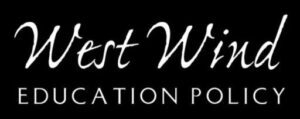How Adults Learn: What Do Reformers Need to Know?
 The West Wind Education Policy web site describes our work in the area of knowledge building and professional development as being based on theories of andragogy–or adult learning. The study of adult learning theory and experience in designing and supporting professional development for educators has taught us a lot about the way teachers and school leaders learn when engaging in professional growth experiences. Andragogy theories suggest that adults need to learn experientially and to be actively involved in the planning and evaluation of their instruction. We know that adults learn best when the topic is of immediate value. We know that experience (including mistakes) provides the basis for effective learning activities and that problem-centered learning rather than content-oriented learning is more meaningful to the adult. Educators, like all other adult learners bring with them a reservoir of experiences, but they also bring extensive doubts and fears to the educational process. Well-designed learning establishes an environment where each learner feels safe and supported, where the individual’s needs and uniqueness are honored, and where the participant’s abilities and life achievements are acknowledged and respected. A productive learning environment encourages experimentation and creativity, while fostering intellectual freedom.
The West Wind Education Policy web site describes our work in the area of knowledge building and professional development as being based on theories of andragogy–or adult learning. The study of adult learning theory and experience in designing and supporting professional development for educators has taught us a lot about the way teachers and school leaders learn when engaging in professional growth experiences. Andragogy theories suggest that adults need to learn experientially and to be actively involved in the planning and evaluation of their instruction. We know that adults learn best when the topic is of immediate value. We know that experience (including mistakes) provides the basis for effective learning activities and that problem-centered learning rather than content-oriented learning is more meaningful to the adult. Educators, like all other adult learners bring with them a reservoir of experiences, but they also bring extensive doubts and fears to the educational process. Well-designed learning establishes an environment where each learner feels safe and supported, where the individual’s needs and uniqueness are honored, and where the participant’s abilities and life achievements are acknowledged and respected. A productive learning environment encourages experimentation and creativity, while fostering intellectual freedom.
Carrie Leana, a researcher from the University of Pittsburgh studied the influence of human and social capital in school settings. Her research suggests that social capital thrives in an atmosphere of mutual trust and collective practice. According to Leana, a school climate that is characterized by trust provides an environment where teachers routinely talk to each other, share the same norms, and hold strong agreement in their descriptions of their school’s culture. Her findings suggest that a trusting climate is more important than the teacher education level, teacher certification, or other human capital measures in predicting student achievement scores.
As federal, state, and local district leaders establish policies that seek to improve educator effectiveness, they are advancing requirements that are intended to change practices in human capital management. Reforms being considered aim at raising standards, ensuring that mentoring and induction supports are in place, offering quality professional development, and improving teacher preparation and performance evaluation systems. If these reforms are going to make a difference, the designers and implementers should consider how the intended and unintended consequences will impact the learning environment for educators. Those responsible for leading reforms should ask questions such as:
• Will reforms provide the infrastructure and the necessary funding to provide intensive professional development?
• Are there policies in place that allocate adequate time for professional growth and collaboration?
• Will performance review processes offer meaningful, accurate, and timely feedback in a way that enhances reflection and supports continuous growth in a safe culture?
• Are educator effectiveness systems designed to contribute to a culture of inquiry, trust, and professional collaboration or is there a risk they will contribute to learning environments that are characterized by competition and norms that create distrust?
• Are teachers full partners in discussions and decision making about changes to the educator effectiveness systems?
• Once changes are implemented, are they evaluated to determine whether the intended outcomes are accomplished? Have any unintended consequences occurred?
For those of us involved in the work of knowledge building and supporting policy developers it is key that we keep asking ourselves this question: What can we do to help policy leaders learn about andragogy, as well as human and social capital so they can make thoughtful decisions about how to build the capacity of educators?
Knowles, M. S. et al (1984) Andragogy in Action. Applying modern principles of adult education, San Francisco: Jossey Bass. Web reference site of Nan B. Adams, PhD . Southeastern Louisiana University.
Retrieved from:
www2.selu.edu/Academics/Faculty/nadams/etec630&665/Knowles.html
Smith, M. K. (2002) ‘Malcolm Knowles, informal adult education, self-direction and andragogy’, the encyclopedia of informal education, Retrieved from www.infed.org/thinkers/et-knowl.htm.
Leana.C. (2010) Social Capital: The Collective Component of Teaching Quality Annenberg Institute for School Reform | Voices in Urban Education p 16-23. Retrieved from www.annenberginstitute.org/VUE/wp-content/pdf/VUE27_Leana.pdf

